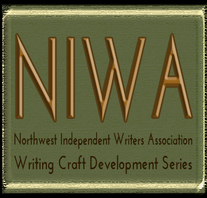 As writers, we all want to be accepted and have others like our work, but we owe it to ourselves to write from the heart. Chuck Wendig, in his post The Danger of Writing Advice from Industry Professionals, says, “And so the advice really should be, don’t use adverbs or adjectives when they sound awkward, or when they fail to tell us something that we need to know.” I repeat: Don’t use adverbs or adjectives when they sound awkward, or when they fail to tell us something that we need to know. In other words, use them when they are necessary and cut them when they aren’t. We know that certain words and phrases don’t add to the narrative and only serve to increase the wordiness. Used too freely, they separate the reader from the experience. For me, especially in my first draft, these words are like tics—they fall out of my fingers and into my keyboard randomly, and out of my voluntary control. I don’t self-edit as I go because at that point, I’m just trying to get the story down. The second and third drafts are where I shape my grammar and phrasing. Two of my three current manuscripts are genre fiction. However, even in my contemporary work, I must write active prose. This means I don’t want to use words with no power behind them. However, I will not blindly remove every ‘ly’ word because that would be ridiculous. Consider adverbs, words that are sometimes reviled and banned by writing groups armed with a little dangerous knowledge. Descriptors frequently end with the letters ‘ly.’ You could do a global search for these letters, and a list will pop up in the left margin of your manuscript. When it comes to adverbs, many times simply removing them strengthens the prose. If they are necessary, I leave them. As Chuck Wendig said, words like “later,” or “everywhere,” or “never” or “alone” are also adverbs. Personally, although it would be an awesome challenge for a NaNoWriMo writing sprint, I don’t see myself writing with no adverbs whatsoever. I seek out adverbs, descriptors, qualifiers, and other “weed words,” look at how they are placed in the context of the sentence and decide if they will stay or go. Many will go, but some must stay. Perhaps you are new enough to this that when other writers point out that you incorporate too many passive phrasings into your narrative, you become confused. This confusion can make us feel angry and hurt, make us want to quit that writing group. We want to avoid wordiness. Overuse of forms of to be (is, are, was, were) leads to wordiness. Long, convoluted passages turn away most readers. Each time you come across a form of this passive phrasing, see if you can use an active form of a verb in place of a form of to be. Acted, as opposed to acted upon. Some people use Scrivener for their writing and swear by it. For myself, I don't need a fancy word-processing program with a difficult learning curve—my life is complicated enough as it is, so I use MS Word as my word processing program, but Google Docs works just as well. Simple is good. A good program to help point out how certain passages need to be “made active” is Pro Writing Aid. I use the professional version for my own work, but they do have a free version that will show you some limited problems in your prose, and just knowing what these are will give you a road map. Indies who don’t have the benefit if a close knit writing group must hire line editors to go over their work. Even editors must have their work seen by other eyes. This is not cheap. If you don’t have an editing program, you must try to find these words on your own. Caution: if you are hasty or impatient, a global search can be dangerous and can mess up an otherwise good manuscript. Be aware: This is a boring, time-consuming task. You can’t take shortcuts. If you get hasty and choose to “Replace All,” you run the risk of making a gigantic mess of your work. Consider the word ‘very.’ This word comes in for a lot of abuse in writing groups and writers’ chat rooms, and there are good reasons to limit its use. BUT suppose you decide to simply eliminate every instance of the word “very” because you have discovered you overuse it. You open the navigation pane and the advanced search dialog box. In the ‘Replace With’ box you don’t key anything, thinking this will eliminate the problem. Before you click ‘replace all’ consider three common words that have the letters v-e-r-y in their makeup:
Deleting every instance of ‘very’ could mess things up on an incredibly large scale. If you have decided something is a ‘weed word,’ examine the context. Have you used the word “actually” in a conversation? If so, you may want to keep it, as dialogue must sound natural, and people use that word in conversation. If you have used it in the narrative to describe an object, it's probably not needed. Context is everything. Take the time to look at each example of the offending words and change them individually. You have already spent a year or more writing that novel, so why wouldn’t you take a few days to do the job right. It’s unfortunate, but there is no speedy way to do this. Every aspect of getting your book ready for the reading public must be done with the human eye, patience, and attention to detail. As I have mentioned before, editing programs are out there, some free, and some for an annual fee. Your word processing program probably has spell check, which can help or hinder you. Grammarly is another editing program I use for checking my own work, in tandem with Pro Writing aid. The BIG problem for those who don’t understand the basics of grammar is, these programs are unable to see the context of the work they are analyzing: “The tea was cool and sweet, quenching her thirst.” Grammarly suggested replacing quenching with quenched. Pro Writing Aid makes similarly strange suggestions. I have no idea why. Context is defined as the parts of a written or spoken statement that precede or follow a specific word or passage, usually influencing its meaning or effect. A person with limited knowledge of grammar will not benefit from relying on Grammarly or any other editing program for advice. This is because these programs operate by finite rules and will often strongly suggest you insert an unneeded article or change a word to one that is clearly not the right one for that situation. New writers should invest in the Chicago Guide to Grammar, Usage, and Punctuation, and learn how grammar works. Currently, at this stage in our technology, understanding context is solely a human function. Because context is so important, I am wary of relying on these editing programs for anything other than alerting you to possible comma and spelling malfunctions. I don’t mind taking the time to visit each problem and resolve them one at a time. I see this as part of my job, just what an author does to make sure her work is finished to the best of her ability. ___________________________________________________________________________________________________ Credits and Attributions: The Danger of Writing Advice from Industry Professionals, by Chuck Wendig, Terribleminds, The Ramble, http://terribleminds.com/ramble/2017/12/12/the-danger-of-writing-advice-from-industry-professionals/ ©2017. Accessed 12 Dec 2017. Portions of this post previously appeared on Life in the Realm of Fantasy in the article Context and Adverbs by Connie J. Jasperson © 12 Dec 2017 and are reprinted here by permission. About the Author: Connie J. Jasperson is a published poet and the author of nine novels. Her work has appeared in numerous anthologies. A founding member of Myrddin Publishing Group, she can be found blogging regularly on both the craft of writing and art history at Life in the Realm of Fantasy.
0 Comments
Leave a Reply. |
Archives
January 2023
Categories |
|
Contact us at:
Mailing Address: Northwest Independent Writers Association P.O. Box 1171 Redmond, OR 97756 Email: [email protected] [email protected] |
 RSS Feed
RSS Feed
